Yasukuni Shrine is by far the most controversial tourist destinations in Tokyo. It was established by the Meiji Emperor to honor the kami, or spirits, of all the people who died in the service of Japan. The main hall, the honden, enshrines those who died from the Bushin War in 1867 to World War II. There are almost 2 1/2 million kami listed, and they are not all soldiers.
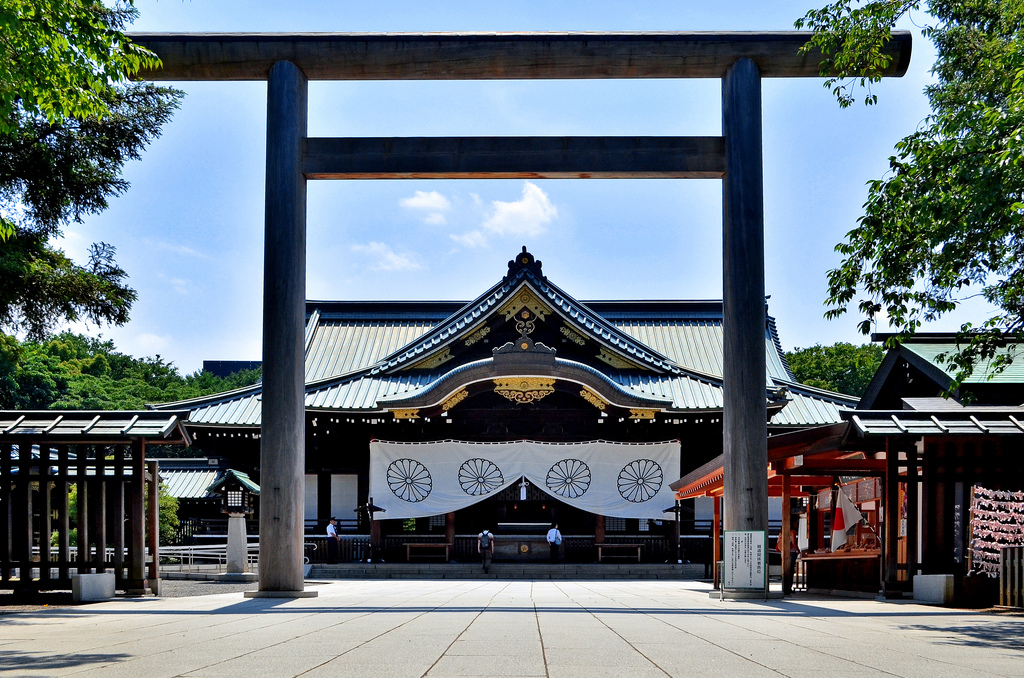
Yasukuni shrine / 靖国神社拝殿
The shrine honors civilians who served the country, including women and children who worked in factories, and foreigners who helped Japan. Some of the names are notorious war criminals, which has incited serious tension when politicians visit the shrine. However, the Shinto belief states that all souls are washed clean in death, and it does not matter what they did in life. There are many buildings and statues of animals and people who served in the wars. There is a dove cote with 300 white doves. The shrine is free to visit.
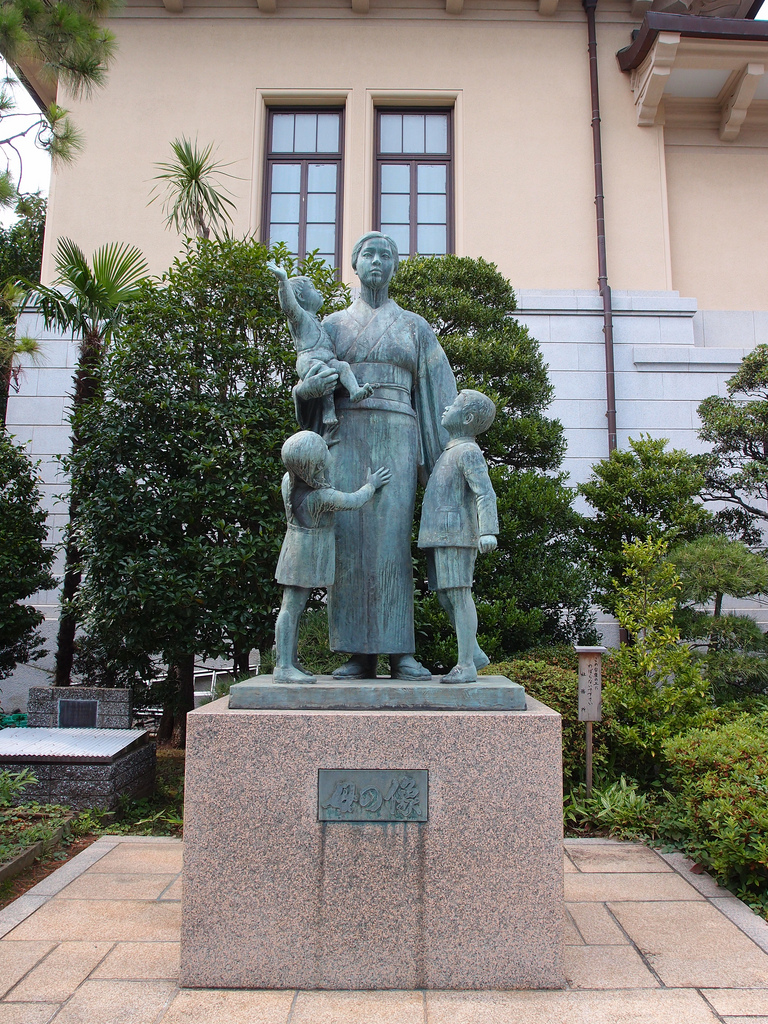
Yasukuni shrine in Tokyo
Military buffs should not miss the Yushukan Museum. It has artifacts, armor, and weapons from many periods, including video footage from the Russio-Japanese war and extensive collections related to the special attack forces from WW II. There are photographs and letters, even a manned torpedo submarine and a zero carrier fighter plane.
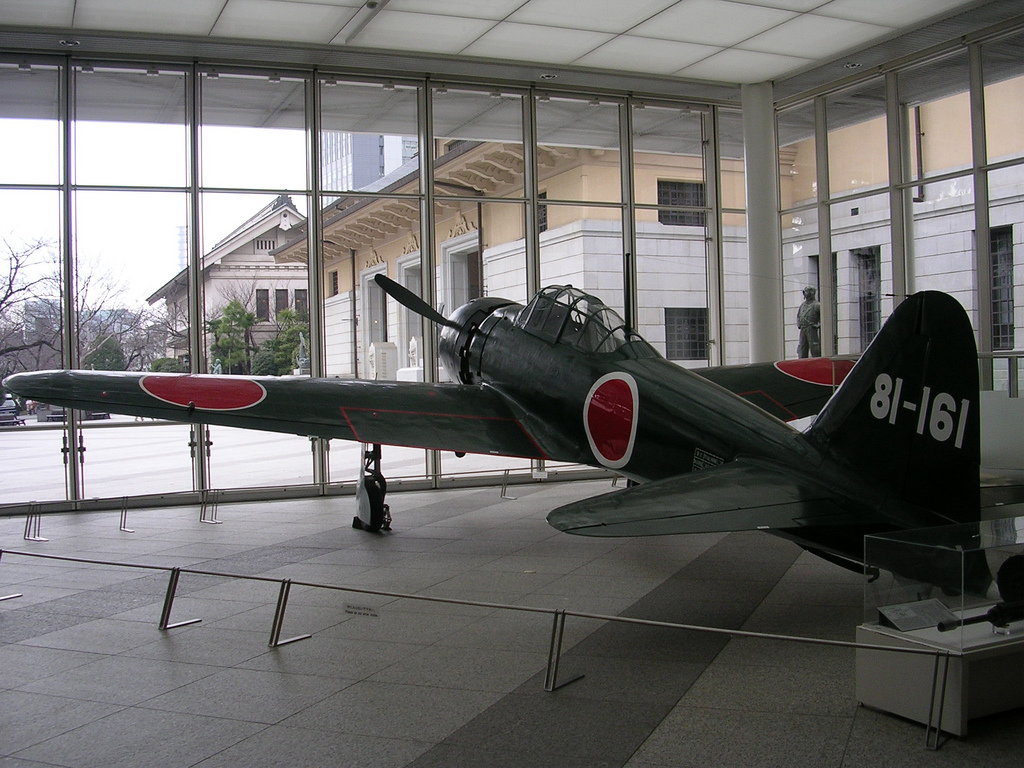
A6M5 Zero at Yasukuni Shrine
There is some English; critics are aghast at the overly biased tone of some. Admission to the museum is 800 yen for adults, 500 yen for university students, 300 yen for high school students, and 100 yen for elementary and junior high students. The museum is open from 9 am to 4:30 pm.
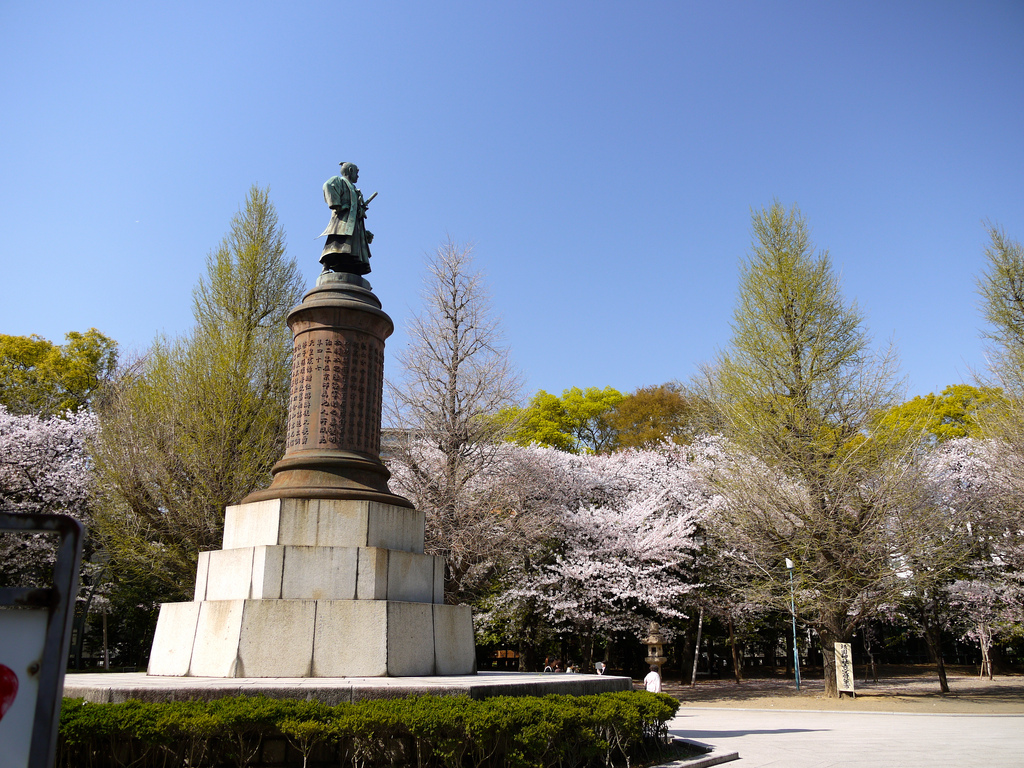
Sakura at Yasukuni Shrine
Mitama Matsuri (みたままつり) is one of the popular summer festivals in Tokyo held at Yasukuni Shrine in the middle of July. There are over 30,000 Chochin, Japanese Lanterns, decorated every year.
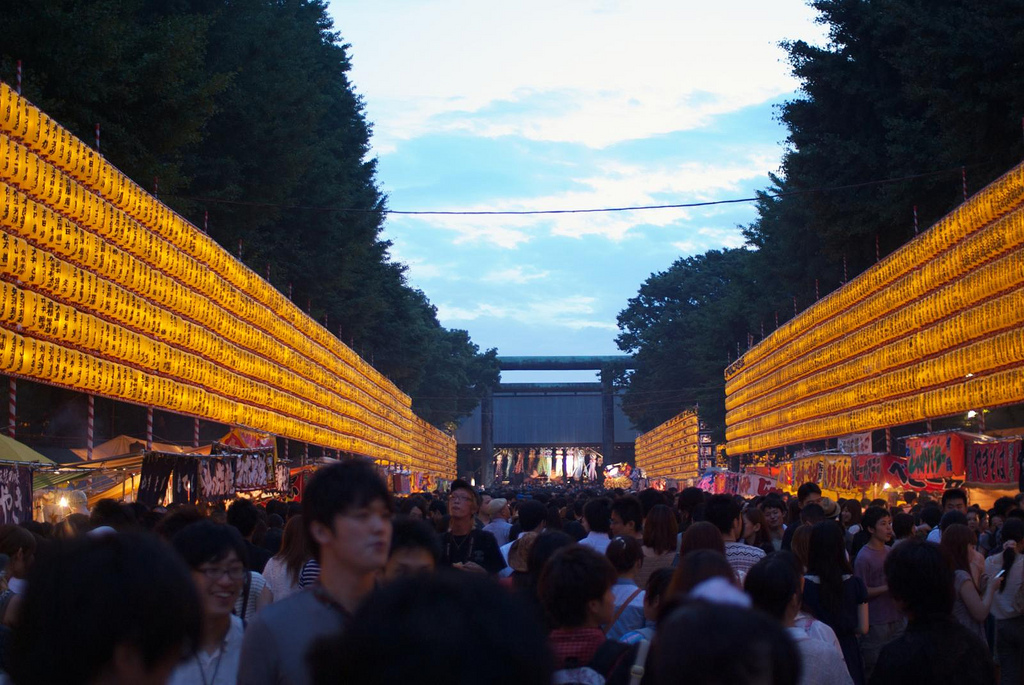
御霊祭 Mitama matsuri at Yasukuni Shrine
Like many festivals in Japan, there are many events and food stands to provide entertainment and nourishment for the 300,000 people that attend Mitama annually.
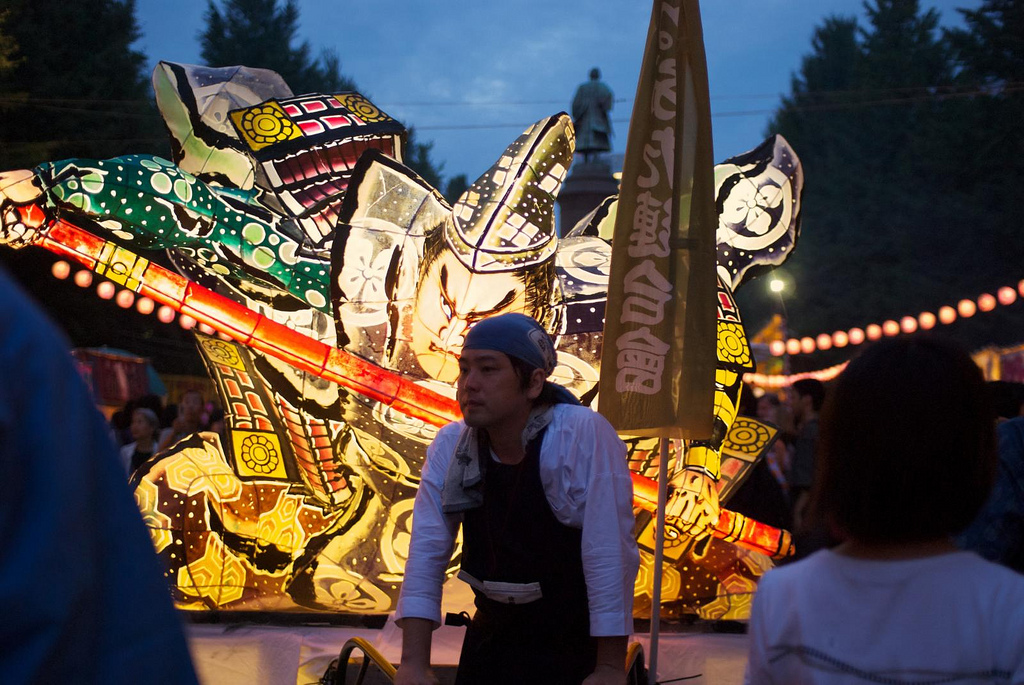
御霊祭 Mitama matsuri at Yasukuni Shrine
Yasukuni Jinja is a 10 minute walk from either the JR Iidabashi Station or the JR Ichigaya Station. It is a 5 minute walk from the subway Kudanshita Station. For more information: http://www.yasukuni.or.jp/english/index.html